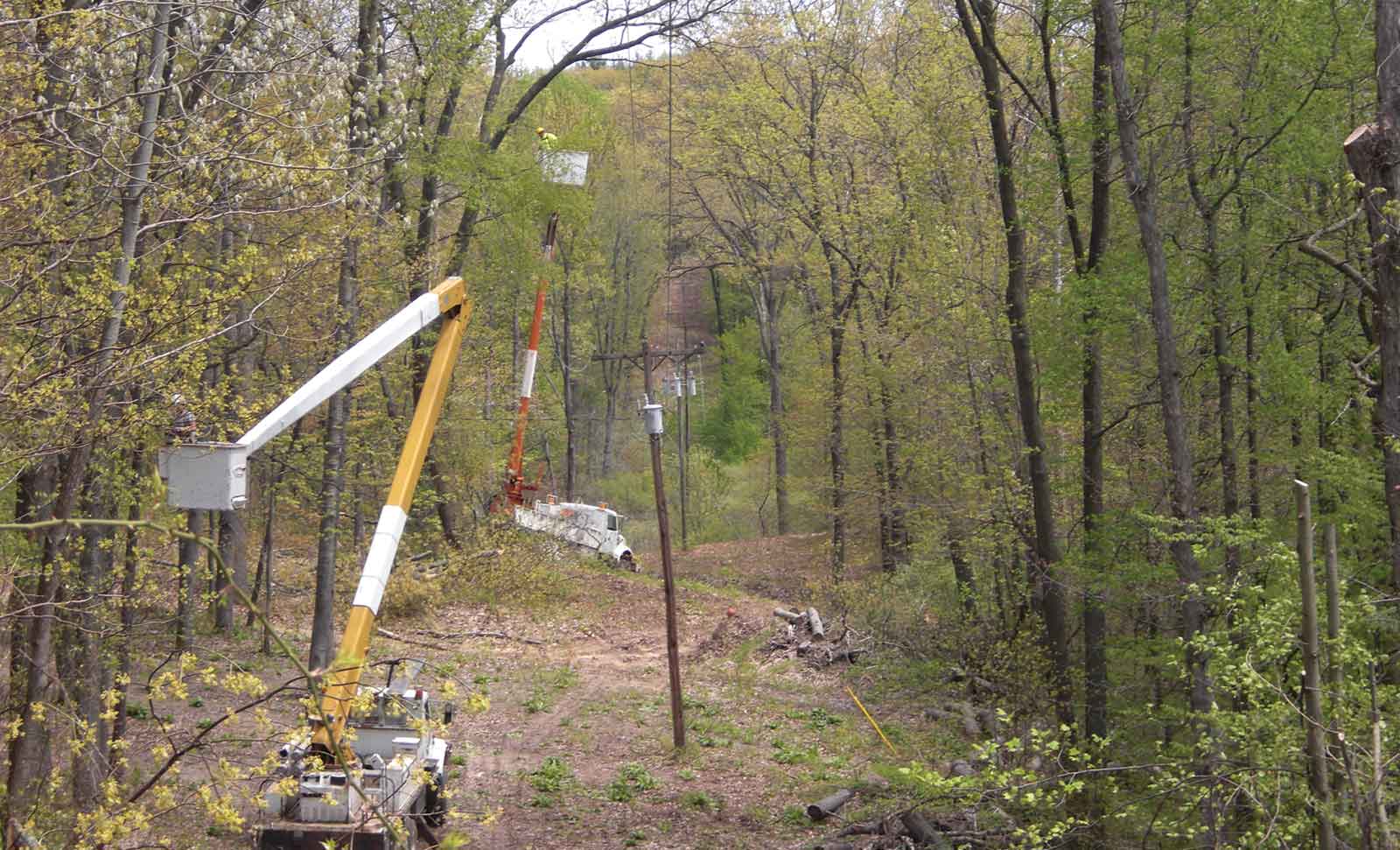Your co-op leadership team recognizes that reliable electricity is not just a luxury; it’s an expectation. That’s why your electric co-op considers its prime objective to be providing you with a reliable and safe electric distribution system. One of the most common—and crucial—ways to do this is referred to as right-of-way clearing (or vegetation management). A right-of-way (ROW) refers to a strip of land underneath or around power lines that your electric cooperative has the right and responsibility to maintain and clear. Many members may not be aware that trees can be a major obstacle to good electric service. To improve your service experience, PIE&G has an aggressive, proactive overhead line clearance program that’s proven to significantly reduce outage hours related to tree interference with our distribution system. That’s why PIE&G has invested nearly $1.5 million annually for its right-of-way maintenance for the last 10 years, and over $1.6 million in 2023.
What We Do and Why
PIE&G’s line clearance standard is to obtain and maintain a ground-to-sky clearance of 15–20 feet, free from all obstructions, on each side of the power line. Where our facilities cross private property, an easement gives us the right to use that property to maintain our right-of-way. An easement can be written and recorded, meaning it is signed and on file at the county Register of Deeds office where the service is located. An easement may also be unwritten, or “prescriptive,” where the land has been used for utility purposes in a continuous and open manner for the statutory period of 15 years under Michigan law. PIE&G’s line clearing program consists of two approaches: mechanical clearing and herbicide application.
2023 Mechanical Clearing Plan
Mechanical clearing is scheduled throughout the year between January and December. PIE&G’s licensed contractors will trim overgrown trees along 251 miles of overhead line at various locations throughout our ninecounty service territory. Members who may be in proximity to areas designated for mechanical clearing will be notified by mail prior to the onset of work in that area. PIE&G will determine if there are trees in your maintained lawn area that should be trimmed or cut. A representative from one of our contracted crews will attempt to contact you in person before the work is started.
2023 Herbicide Application
The schedule for herbicide application is set to occur between March and October. PIE&G has hired professional, licensed contractors to treat approximately 379 miles of line throughout its service territory with state-approved herbicide. PIE&G will notify members whose service is near the designated areas by mail prior to the onset of work. Herbicide is not applied to mowed lawn areas. Herbicide effectively controls tall-growing trees and bushes while promoting low-growing plants such as grasses, wildflowers, and shrubs that are beneficial to wildlife. It offers longerterm results in a more cost-effective way and is endorsed by several environmental, forestry, and wildlife providers as offering benefits to many wildlife species.
Jobsite Cleanup
Our contract crews dispose of trimmed branches and limbs in the most economic and practical manner possible. It is customary during regular line clearing activity that crews will remove branches and limbs within maintained or landscaped areas, and leave the wood for use by the property owner. In unmaintained areas, crews will leave wood, branches, and limbs for use by the property owner to decompose naturally. PIE&G does not remove stumps after tree removal. During emergency power restoration activities, crews clear trees off and away from our lines in order to make repairs. PIE&G does not return to remove wood, branches, and limbs that were removed during outage restoration efforts.
Our Commitment to Safety
Safety is a top priority for PIE&G. Although Mother Nature provides an amazing setting for our enjoyment of outdoor activities, it’s best to keep your activities away from overhead power lines. If you see a downed power line due to a fallen tree or branch, stay away and immediately call PIE&G to report it. To avoid potential electrical contact, never attempt to remove branches or trim trees that are near power lines. Any tree in close proximity to a power line can present a safety hazard.
Service Line Trimming
PIE&G will trim along the service line running from the transformer to your home when a tree is in contact with the power line. We do not remove trees located near service lines. If you plan to have a tree removed from your property, contact us a week or more in advance so we can schedule a crew to visit, de-energize, and drop the line so you can have the tree safely removed. PIE&G will need at least five business days’ prior notice.
Plan Ahead
Trees and power lines do not mix, so careful planning is important before you begin any landscape plan or outdoor project. Trees grow quickly, so the seedling you plant today may well reach a height exceeding 30–50 feet in a few years. Avoid planting trees beneath overhead utility lines or near your service line. Be safe. Look around and note what’s overhead, on the ground, and underground before beginning any outdoor work project. Be sure to call 811 or MISS-DIG at least three days before digging, to request that underground utilities be marked.
For more information about PIE&G’s line clearance procedures, contact our Member Services Department at 800-423-6634.






